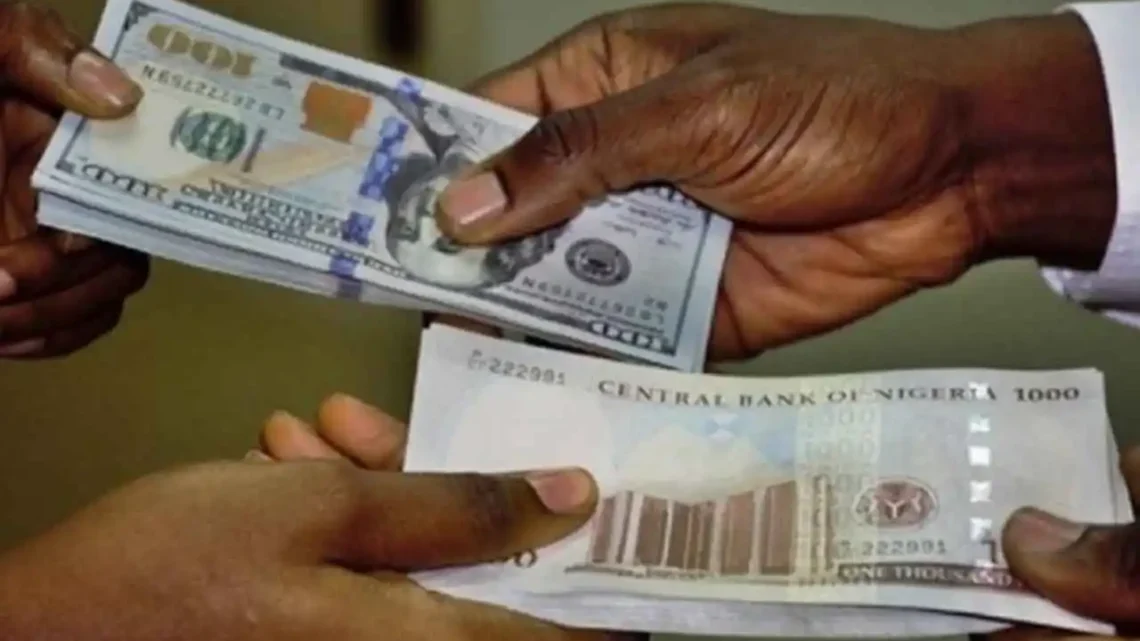
Aboki Naira to Dollar Black Market Exchange Rate Today, 5th October 2025
The Nigerian Naira maintained relative stability against the US Dollar in the parallel market, commonly known as the black market, on Sunday, with Aboki traders quoting a selling rate of ₦1,470 per dollar and a buying rate of ₦1,450.
This marks no change from the previous trading day, providing a brief respite for importers and travelers amid ongoing economic pressures.
Trending Now!!:
According to updates from Bureau De Change (BDC) operators in major cities like Lagos, Abuja, and Port Harcourt, the rates reflect a cautious market sentiment following a slight dip earlier in the week. The Aboki FX platform, a go-to source for real-time parallel market data, corroborated these figures, noting minimal fluctuations over the weekend as low trading volumes prevailed due to the Sunday slowdown.
The black market rate, which often diverges significantly from the Central Bank of Nigeria’s (CBN) official window, underscores persistent challenges in Nigeria’s foreign exchange landscape. While the official rate hovered around ₦1,500 per dollar last checked, the parallel market premium highlights liquidity strains and demand for hard currency in an import-dependent economy.
Recent Trends: A Volatile Week Behind Us
Over the past week, the Naira has experienced modest volatility:
- October 4 (Saturday): ₦1,470 sell / ₦1,450 buy – Stable from Friday.
- October 3 (Friday): ₦1,470 sell / ₦1,450 buy – Holding firm.
- October 2 (Thursday): ₦1,490 sell / ₦1,470 buy – Slight depreciation.
- October 1 (Wednesday): ₦1,490 sell / ₦1,470 buy – Unchanged.
- September 30 (Tuesday): ₦1,510 sell / ₦1,490 buy – Peak of the week.
This week’s rates represent a recovery from late September highs, where the dollar briefly touched ₦1,510 amid heightened demand for school fees and holiday remittances.
Economists attribute the current steadiness to seasonal factors and CBN interventions, though experts warn of potential upward pressure if oil prices – Nigeria’s primary export earner – continue to waver.
For everyday Nigerians, these rates mean continued high costs for dollar-denominated goods, from electronics to fuel imports. A family exchanging $100 for travel or education would receive ₦145,000 to ₦147,000, a stark reminder of the Naira’s 2025 depreciation trajectory, which has seen it lose over 20% of its value year-to-date.
Businesses in the import sector are urging the government to implement more aggressive forex reforms, including boosting diaspora remittances and non-oil exports. “The black market remains a lifeline for many, but sustainability requires policy action,” said Dr. Aisha Bello, an economist at the Lagos Business School.
As markets reopen on Monday, traders anticipate possible shifts based on global cues like US Federal Reserve signals. Stay tuned for live updates from Aboki sources and official channels.
Rates are indicative and may vary by location and dealer. Always verify with trusted BDCs for transactions.


